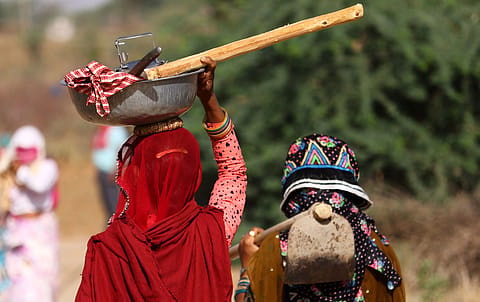ILO calls for global coalition for social justice
The ILO estimates that the implementation of a global social protection floor for older persons, would have profound demographic and economic effects in low-income and lower-middle-income countries.

International Labour Organization (ILO) has called for a Global Coalition for Social Justice (GCSJ) that can act as a vehicle for high-level dialogue and engagement between the World Bank, the IMF (International Monetary Fund), and regional development banks etc, for greater policy coherence at the international and national levels on social safeguards in investment and development projects.
In a report on Advancing Social Justice, released at the 111th Session of International Labour Conference on June 5 in Geneva, Gilbert F. Houngbo, the Director General of ILO, suggests that GCSI will enable joint work to identify options for expanding fiscal space for full employment and the establishment of a social protection floor.
"The fourth industrial revolution which promises a radical transformation of production methods, the demographic upheavals, and the imperative need to decarbonize the economy are opportunities for a better future for us all," says the Director General. "But at the same time … 4 billion of our fellow citizens have no social protection and 214 million workers earn less than the poverty line…. A large number of job-creating micro and small enterprises have gone bankrupt" he says. The Global Coalition for Social Justice would aim to, "balance environmental, economic and social considerations in the global conversation, including in the reform of the international financial architecture” and “advocate policy coherence and investment in social protection and decent work," according to Houngbo.
The report suggests that joint work between the ILO and the World Bank at the country level can establish rights-based universal social protection systems and build on the Global Partnership for Universal Social Protection to Achieve the Sustainable Development Goals. The report also talks about the possibility of an anti-crisis framework to ensure that, in times of crisis, institutional programmes fully integrate the social dimension, safeguarding jobs and guaranteeing a social protection floor to ensure a more inclusive, sustainable and resilient recovery was also highlighted. “The COVID-19 crisis showed that this is possible, but it is necessary to ensure that it is also a reality for debt-stressed countries and those with limited fiscal space”, it says.
The ILO estimates that the implementation of a global social protection floor for older persons, in line with the provisions of the Social Security (Minimum Standards) Convention, 1952 (No. 102), and the Social Protection Floors Recommendation, 2012 (No. 202), would have profound demographic and economic effects in low-income and lower-middle-income countries, resulting in a 14.8% increase in the gross domestic product (GDP) per capita of those countries in ten years.